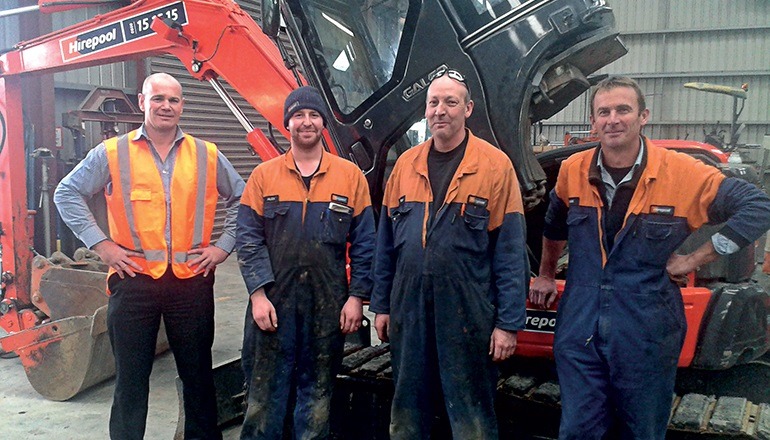The way construction companies focus on controlling costs and managing capital is creating new opportunities for the equipment hire industry, says Hirepool.
HIREPOOL CHIEF EXECUTIVE Brian Stephen says that companies caught out by the GFC have learnt a few lessons and the traditional view that businesses are best served by owning their own equipment is changing.
Brian says that for equipment hire companies to achieve similar levels of rental penetration of equipment use to those seen in the UK and US construction industries, Hirepool needs to play its part in better educating customers about what it can do for them.
“We need to give them confidence that we can meet their immediate need for safe and reliable equipment that’s fully fit for purpose, and that we can also also add value over and above just providing them the tools they need to do the job,” he says.
Brian says handing over the risk associated with major capital investment is one reason many construction firms are increasingly looking to companies such as Hirepool to meet their equipment needs.
“We have the size to spread the risk. We also have customers in a number of different industries, so we are to some extent protected from fluctuations in individual sectors, says Brian.
“Managing capital risk well is challenging, but it is core business for us. We aggregrate what is typically a short to medium term requirement for equipment across our national customer base and branch network, against a pool of assets that are often long life and high value.
“That is our principal role in the hire game.”
Brian says smart purchasing depends a lot on good timing. Hirepool talks to its customers about what jobs they have coming up and what equipment they are likely to need, and keeps a very close eye on broader economic trends at home and abroad – but the unexpected is often just around the corner.
“The recent floods in Whanganui are a great example of how quickly things can change – and how a company like ours needs to be ready to respond.”
Brian says this is where Hirepool’s large network comes into its own.
“Having people on the ground and fleet capacity close by means you can put resources where they are needed fast and effectively.”
Brian says Hirepool is presently “about the right size”, but doesn’t rule out changes in the future.
 “We’re always looking for opportunities to grow and develop the business. We have the systems and infrastructure to take advantage of opportunities as they arise, but in the longer term changes to the structure of the business or the size and shape of the network are always possible.”
“We’re always looking for opportunities to grow and develop the business. We have the systems and infrastructure to take advantage of opportunities as they arise, but in the longer term changes to the structure of the business or the size and shape of the network are always possible.”
When Hirepool’s National Training manager, Brendon Ross, started with the company as a transport driver, his present role didn’t exist. Fast forward 15 years, and the work done by Brendon and his team of four trainers illustrates how much the equipment hire business has developed over the past few decades, and where it is heading.
“We’ve got a big range of equipment, and we hire to a broad range of people – from DIYers to major construction companies,” says Brendon.
“We work hard to train our people so that they fully understand the specifications of the equipment, and how to use it so that you get the best out of it, then they can ensure our customers have the right gear for the job – and the knowledge to get the job done safely and well.”
Brendon says that as construction techniques become more sophisticated and equipment more specialised, the benefits of hiring become more apparent.
“It gives our customers ready access to modern gear that they can use to improve safety and productivity.”
Business Development manager Warren Twort agrees that Hirepool’s team members have a broader involvement with customers today than when he first joined the company in 1982.
“If we can work with the customer as a part of their project team rather than as just another supplier, we’re confident that we will provide tangible benefits,” says Warren.
“The better our knowledge of the project, the better our advice – and the better the outcome for our customers.
“It takes a bit of time to develop the sort of trust and confidence that a relationship like this depends on, but when you get there it’s a very rewarding experience.”


Parting words from Jeremy Sole- a final column